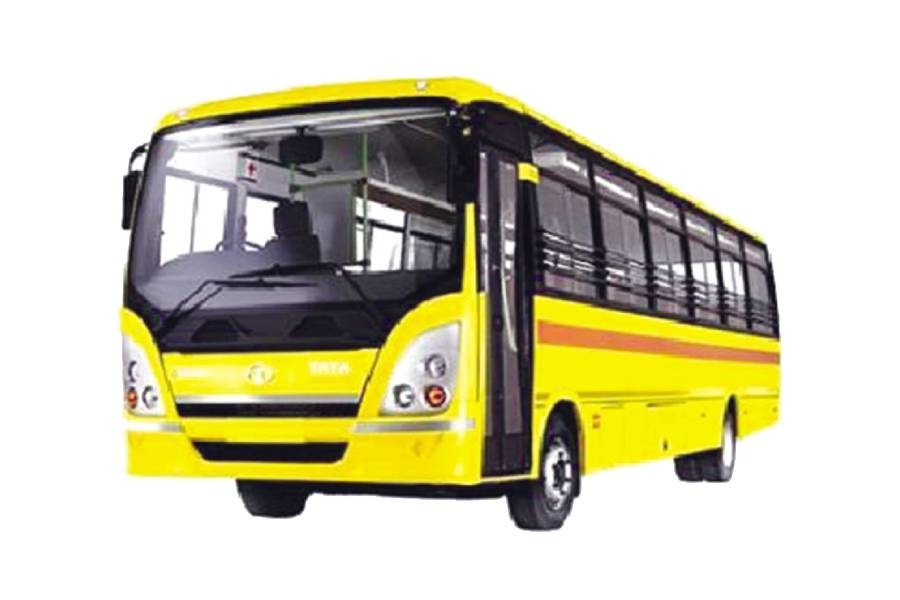
Published :
Updated :

As Dhaka's population keeps swelling and traffic jams become more intensified, the need for a quality, proficient, and extended bus service is growing. The current public transport system is not only inefficient and inadequate, but it also operates in a chaotic manner. Overcrowded, unsafe, lacking in hygiene, and poorly maintained buses have forced many passengers to choose private vehicles, contributing to a surge in small vehicles on the roads and worsening traffic congestion.
Successive governments have consistently made ambitious promises and plans to transform the city's transportation system, but have failed to deliver. As a recent report of The Financial Express mentions, for over three decades, Dhaka's public transport system has been the subject of countless studies, proposals, and initiatives aimed at streamlining the city bus service. And yet, there is no discipline, no monitoring, and no change.
The report also notes that the deeply entrenched politicisation and criminalisation of the transport sector have been the main reasons for the failure to implement any effective plan to bring even a modicum of order in the transport sector. Since 1990, at least 14 major studies, including the Dhaka Integrated Transport Study (1992-94) and the Dhaka Bus Network and Regulatory Reform Implementation Study (2013-2015), have put forward recommendations for a more disciplined and passenger-friendly system. The key recommendation of nearly all these studies has been the introduction of a Bus Route Franchise (BRF) system, which would rationalise the city's bus routes and create a single company to manage them.
In a recent meeting with the chief advisor, BUET professors Moazzem Hossain and Md. Hadiuzzaman put forward this point, urging the government to establish a unified bus company. Under this proposal, no buses outside of this company would be permitted to operate in Dhaka. Privately owned buses would either transfer ownership to the company and become partners or sell their buses. Dhaka would then be divided into 40 to 50 designated routes, all managed by this central company and run with greater efficiency. If buses are operated by a single company, and not run under individual driver contracts, the chaotic and unhealthy competition between buses to pick up passengers would stop and roads would become safer. Moreover, the competing buses often stop or park haphazardly, sometimes even in the middle of the road, to pick up passengers and block rival buses from overtaking, which leads to drivers' frustration and traffic tailbacks.
The BUET professors' proposal to bring all privately owned as well as BRTC buses under a single company aligns with the goals of the Bus Route Franchise (BRF) or 'Dhaka Nagar Paribahan' project, which was launched in 2021 as pilot project in three routes of Dhaka. The project, however, didn't succeed because of Dhaka Transport Coordination Authority's (DTCA) failure to prevent unauthorised buses from operating on the designated routes. While buses under Dhaka Nagar Paribahan were seen stopping only in designated stops, other buses on the same route were allowed to pick up passengers randomly. As a result, private operators withdrew their buses from the scheme, citing losses. To fully implement route franchising, specific corridor is exclusively assigned to a designated company. Success of company-based bus operations in areas like Hatirjheel and Gulshan are proof that this model can work if properly implemented and supervised.
Addressing the technical issues alone, however, will not be enough because the transport sector owners hold considerable political influence and they come in the way of successful implementation of BRF. Corruption is also rampant in the sector. Transparency International, Bangladesh (TIB) estimates that over Tk 10 billion is extorted annually from the transport sector, with portions of this money flowing into the pockets of traffic police, transport leaders, and high-ranking officials in the Bangladesh Road Transport Authority (BRTA).
It is, therefore, urgent to break the powerful syndicate of transport owners to implement reform measures in transport sector.


 For all latest news, follow The Financial Express Google News channel.
For all latest news, follow The Financial Express Google News channel.